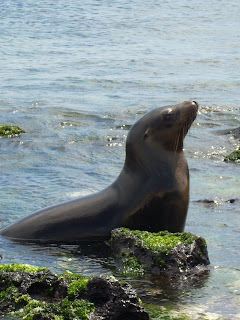
Due to a sudden change of events, I am spending the holidays in Kansas with my family. After the initial stress of changing flights, traveling, and overcoming the sudden temperature change (around 60 degrees difference), I feel very blessed to be home.
I am focusing on flexibility. I am trying to take a deep breath and accept (not try to force change or resist things I cannot control), but just exist so that each new challenge is lived through. Like I said, I'm working on it...
I left the islands with only three days of planning. I surprised all my relatives, only my parents knew I was coming home. Every time I visit, it is intense. This is simply due to the fact that I have a very close family, it's a challenge trying to spend meaningful time with each individual. But I try.
Tomorrow I am baby-sitting my two-year old nephew, which I am really excited about, but also nervous. All he likes to play with and talk about (and boy does he talk!) are trucks and tractors and tools and farm equipment. Not exactly my strong subjects.
Talking with my mom this evening, we told each other what Christmas traditions were most important to us. My mother, being one of the most jolly people in the world (a close second to my sister, the Christmas baby), loves the music, decorations, family under one roof, all of it.
I told her that my favorite traditions were just being together: I love cooking and since I come from a long line of great cooks, there are plenty of recipes that have been handed down through the generations.
Since I've been an "adult" (legally speaking, of course, still waiting to grow all the way up), I have enjoyed waking up early on Christmas morning. There my parents already sit, coffee mugs and bath robes, quilts on their laps. The only lights on in the house are the sparkling decorations and blinking tree. Miniature villages from Mom's collection are also settled around the room. There we sit, in the glow of the holiday, talking quietly and sharing memories. Slowly, yet all too soon, the sun comes up and the day begins.
We start making a brunch of rich tradition and comfort food. Later, the others come with their families and we celebrate again, much later, we celebrate my sister's birthday. We play games, we visit, we give gifts that have meaning, we eat the amazing treats that have been prepared.
It is this year that is so different, though every year brings something new: I am engaged, but I had to come alone, my parents and brother are living in new homes, my nephew is too big for his own britches, and there's another on the way! As I sit in the glow of the small tree this year, I am happy to be home, knowing that this is a different Christmas, and next year will be even more changed.
There is no point to holding onto your reservations about how things should be. They won't ever be. Change is natural and beautiful, sometimes drastic and chaotic and heartbreaking. So it goes...



















